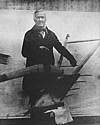
Stephen McCormick died on 28 Aug 1839, today, a second chance to familiarize yourself with his contribution to agriculture. (He was born on 26 Aug 1784.)
He was an American inventor and manufacturer of a practical cast iron plow with detachable components. His early achievement, while a youth, was to increase the productivity of a water-powered grist-mill by improving the shape of its nether millstone (the lower of the two millstones) used to grind flour. Though his father desired that he should make law his profession, he flatly refused. He was more interested by invention. By 1816, he had invented a cast-iron plough superior to Charles Newbold's earlier design. McCormick's first of several patents was issued on on 3 Feb 1819. His cast-iron mould board had an adjustable wrought-iron point mounted beneath, able to decrease the draft, while deepening the furrow, and breaking up the soil more effectively. Standardization of the replaceable parts led to the development of improved manufacturing processes.
For a larger picture of McCormick with one of his plows, and a few more biographical remarks, read this article on Stephen McCormick.
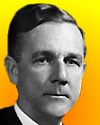
George Hoyt Whipple, born 28 Aug 1878, was an American physician and pathologist who shared the 1934 Nobel Prize for Physiology or Medicine with George R. Minot and William P. Murphy for “their discoveries of a treatment of pernicious anemia with a special diet of liver.” Whipple began a study in 1920 of the influence of food on blood regeneration. From experiments on dogs bled to reduce blood volume, he found the best food to stimulate the bone marrow for the production of the new red blood corpuscles was raw liver. Other foods, including kidney and apricots were also found helpful. Minot and Murphy applied Whipple's discovery of the value of liver. They designed a special diet for humans with a particular noninfectious disease - pernicious anemia. The three researchers made a major advance with a non-drug treatment of this condition. Today's book pick is: , by , which will give you some idea of what goes in to winning a Nobel Prize!
It is available from Amazon, typically about (As of earlier time of writing - subject to change.)
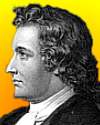 | Whether one show one's self a man of genius in science or compose a song, the only point is, whether the thought, the discovery, the deed, is living and can live on. |
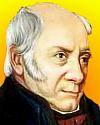 | Organized Fossils are to the naturalist as coins to the antiquary; they are the antiquities of the earth; and very distinctly show its gradual regular formation, with the various changes inhabitants in the watery element. |
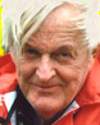 | Butterflies are very interesting. Here these things are little grubs for a while. And then they go into a little coffin. There they are in a sarcophagus, and then they come out and dance with the angels. |
| Before you look at today's web page, see if you can answer some of these questions about the events that happened on this day. Some of the names are very familiar. Others will likely stump you. Tickle your curiosity with these questions, then check your answers on today's web page. | |
| Births | |
 | Sir Godfrey Newbold Hounsfield, born 28 Aug 1919, was an English electrical engineer who shared the 1979 Nobel Prize for Physiology or Medicine for developing CAT, a high-resolution x-ray picture of an imaginary slice through the body (or head) is built up from information taken from detectors rotating around the patient. CAT is an acronym; what is its name in full? |
 | Roger Tory Peterson, born 28 Aug 1908, was an American author of field guides, and did much in the United States and Europe to stimulate public interest in his topic. What was his field of interest? |
| Deaths | |
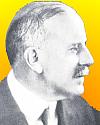 | Four geologists died on 28 Aug, each of a different era and in different parts of the world. Pictured at the left, William Bowie (1872-1940, geodesist who investigated isostasy); Sir T. W. Edgeworth David (1858-1934); Émile Haug (1861-1927, geologist known for his contributions to the theory of geosynclines); and William Smith (1769-1839, geologist who developed stratigraphy and also made a monumental study of a certain country). For each geologist, can you give their nationality or the country they studied? |
| Events | |
 | On 28 Aug 1963, the Evergreen Point road bridge connecting Seattle and Bellevue opened. What was the unusual construction type this bridge? |
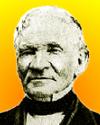 | On 28 Aug 1845, the first issue came out in the U.S. of a science magazine that is still being published under the same name. The first publisher was Rufus Porter (1792-1884), a versatile if eccentric Yankee, who was by turns a portrait-painter, schoolmaster, inventor and editor. What is the name of this magazine? |
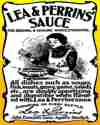 | On 28 Aug 1837, English pharmacists John Lea and William Perrins began the manufacture of a now world-famous condiment. What condiment? |
Fast answers for the previous newsletter for August 27: ammonia, directly from nitrogen and hydrogen • cyclotron • one penny • Venus fly-by • Pennsylvania.
 If you enjoy this newsletter, the website, or wish to offer encouragement or ideas, please send feedback by using your mail reader Reply button.
If you enjoy this newsletter, the website, or wish to offer encouragement or ideas, please send feedback by using your mail reader Reply button. Your click on a Facebook, StumbleUpon, or other social button on the site webpages is also a welcome sign of appreciation. Thank you for using them.
© This newsletter is copyright 2020 by todayinsci.com. Please respect the Webmaster's wishes and do not put copies online of the Newsletter — or any Today in Science History webpage. (If you already have done so, please remove them. Thank you.) Offline use in education is encouraged such as a printout on a bulletin board, or projected for classroom viewing. Online, descriptive links to our pages are welcomed, as these will provide a reader with the most recent revisions, additions and/or corrections of a webpage. For any other copyright questions, please contact the Webmaster by using your mail reader Reply button.
--
If you do not want to receive any more newsletters, Unsubscribe
To update your preferences and to unsubscribe visit this link
Executive Real Estate Business Class
-
"It was like a man with wings. It wasn't like anything you'd see on TV or in a monster movie." ...
About the publisher
Search This Blog
Blog Archive
-
▼
2020
(1542)
-
▼
August
(192)
- HISTORY: Lessons from the latest March on Washington
- New This Week on History News Network
- Discover lost cities with Nat Geo History. Subscri...
- On This Day for August 31 - Confederates evacuated...
- Newsletter for Monday 31 August.
- Face Masks Make you dumb (compliant) Economic des...
- August 31: Malaya Gains independence, Princess Dia...
- FAMILY: How to get your kid to wear a mask
- Roman numerals | Ancient empires | The battle of C...
- On This Day for August 30 - Historic spaceflight b...
- Newsletter for Sunday 30 August.
- August 30: Crossbow Outlawed, Nehru Requests Indep...
- The Compass: London
- On This Day for August 29 - New Orleans hit by Hur...
- Newsletter for Saturday 29 August.
- August 29: Treaty of Nanking, Second Battle of Bul...
- CORONAVIRUS UPDATE: These promising treatments are...
- PHOTOGRAPHY: Lives that matter, from the pietà to ...
- The Horrifying True Story Behind "Candyman," The Y...
- The Roundup Top Ten from History News Network
- On This Day for August 28 - Civil rights march on ...
- Newsletter for Friday 28 August.
- August 28: Tom Thumb Races a Horse, Scientific Ame...
- ANIMALS: When baby wombats become your roommates
- Give your kids the world! Subscribe now.
- Create remote resiliency with Britannica Kids
- On This Day for August 27 - The death of Titian, M...
- Newsletter for Thursday 27 August.
- Lockdown for you but not for the politically corre...
- August 27: Krakatoa Erupts and the End of Lord Mou...
- YOUR WEEKLY ESCAPE: Inside the world of transhuman...
- SCIENCE: Behind the hurricanes, wildfires, and bla...
- Demystified: What Does Gaslighting Mean?
- The Latest News from History News Network
- On This Day for August 26 - Joan of Arc's arrival ...
- Newsletter for Wednesday 26 August.
- Fear fatigue is more dangerous than COVID-19 plus
- August 26: Longbows, Cannons and Morris Mini-Minors
- For Your Eyes Only: America’s Spying Secrets
- 50+ Vintage Pictures Of Your Parents Being Cooler ...
- TRAVEL: Waiting for a silver lining
- On This Day for August 25 - Paris liberated, Sean ...
- Newsletter for Tuesday 25 August.
- August 25: French Arrive in Louisiana, James Cook ...
- HISTORY: Why the U.S. Postal Service matters
- Even Life-Long Learners Need Back-to-School Savings!
- Experience a 360-degree virtual tour of the Nat Ge...
- New This Week From History News Network
- On This Day for August 24 - Eruption of Mount Vesu...
- Newsletter for Monday 24 August.
- GeoEngineering Massive Drought WildFires + More Ma...
- August 24: Alaric I Sacks Rome, British Capture Wa...
- FAMILY: How you can support your kid's teachers—an...
- Genghis Khan | Edward the Confessor | The Spanish ...
- On This Day for August 23 - William Wallace execut...
- Newsletter for Sunday 23 August.
- August 23: 1st US Women's Rights Convention, Bin L...
- The Compass: U.S. National Parks
- On This Day for August 22 - Wars of the Roses ende...
- Newsletter for Saturday 22 August.
- August 22: Wars of the Roses Ends, Chennai Founded...
- CORONAVIRUS UPDATE: Your employer could require yo...
- PHOTOGRAPHY: Capturing a muted Russia
- The Unsung Heroes Who Fought For Women's Voting Ri...
- The Roundup Top Ten from History News Network
- On This Day for August 21 - French defeated at the...
- Newsletter for Friday 21 August.
- YOUR WEEKLY ESCAPE: A million people live in under...
- August 21: Mona Lisa is Stolen, the 50th US State ...
- ANIMALS: Soft and virus-y, the mink with COVID-19
- On This Day for August 20 - Viking 1 launched, Eer...
- Total Exposé! Watch the 2nd Plandemic Movie "InDoc...
- Newsletter for Thursday 20 August.
- August 20: The Dutch East India Company, Sun Yat-s...
- A Champion Will Be Crowned on 'Forged in Fire' Ton...
- SCIENCE: The robots have arrived
- The Latest News from History News Network
- On This Day for August 19 - Attempted coup against...
- Newsletter for Wednesday 19 August.
- August 19: Cease-Fire in the Iran-Iraq War and Gor...
- TRAVEL: Will new tech make flying safer now?
- Sail along with Ancient Explorers w/ Nat Geo History!
- On This Day for August 18 - Nineteenth Amendment r...
- Newsletter for Tuesday 18 August.
- August 18: Wilson's Ill-fated Neutrality, American...
- HISTORY: Breaking 'substantial barriers' with Kama...
- New This Week On History News Network
- On This Day for August 17 - Indonesia's declaratio...
- Newsletter for Monday 17 August.
- State of Tennessee orders Home visit checks on ALL...
- August 17: Division of Korea, Indonesian Independe...
- FAMILY: Preparing for this unusual school year
- Medieval baby names | Attila the Hun | Pederasty i...
- On This Day for August 16 - Leonel Fernández Reyna...
- Newsletter for Sunday 16 August.
- August 16: Deadly Chaos in Calcutta and the Last C...
- The Compass: New Zealand
- On This Day for August 15 - Independence for India...
- Newsletter for Saturday 15 August.
- August 15: The Mayflower Sets Sail, Indian Indepen...
-
▼
August
(192)
-
Blogroll
-
About
HistoryFact










0 comments:
Post a Comment